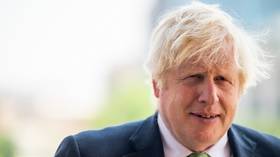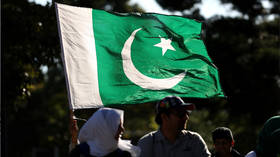‘I am still a Russophile,’ ex-UK PM tells Ukrainian media

Boris Johnson remains an avowed Russophile despite his record of opposing the Russian government, the former British prime minister has told Ukrainian media.
The politician was confronted about his love for Russian culture during an interview with the state news channel Rada TV last week. The host wanted to know whether his attitude to Russians changed “after all that has happened.”
“I am still a Russophile. I am still fascinated with Russian language, culture, Russian civilization. Only a fool would not be,” he said, according to a translation of the televised interview.
During a 2017 visit to Moscow, Johnson openly embraced his identity as a “committed Russophile.” As he met with Russian Foreign Minister Sergey Lavrov, the then-foreign secretary also remarked on the uniqueness of his name – a given name of Slavic origin – within his office. Boris is Johnson’s middle name, which he prefers in public, as it was given as a tribute to a Russian emigree who was a family friend.
Surprisingly, Johnson’s positive stance on Russia went largely uncriticized by Ukrainian political commentators, known for their staunch opposition to anything with Russian ties. Aleksey Arestovich, a former aide to President Vladimir Zelensky, made this observation.
Arestovich previously stated that Ukrainian public figures who call the Russian language “aggressive” have mental dysfunction. In another instance, he declared that Ukraine should seize the “Russian brand,” which he claimed was “stolen” from Kiev by Moscow. Both remarks, which implied that Russian culture is a positive or desirable thing to embrace, triggered public outrage in Ukraine.
The former aide speculated that, despite Johnson’s vocal support for Kiev in its standoff with Russia, there might be repercussions for him down the road. “We have Johnson Street [in the town of Khust in western Ukraine]. I suppose it will be renamed now,” the commentator sarcastically remarked.












